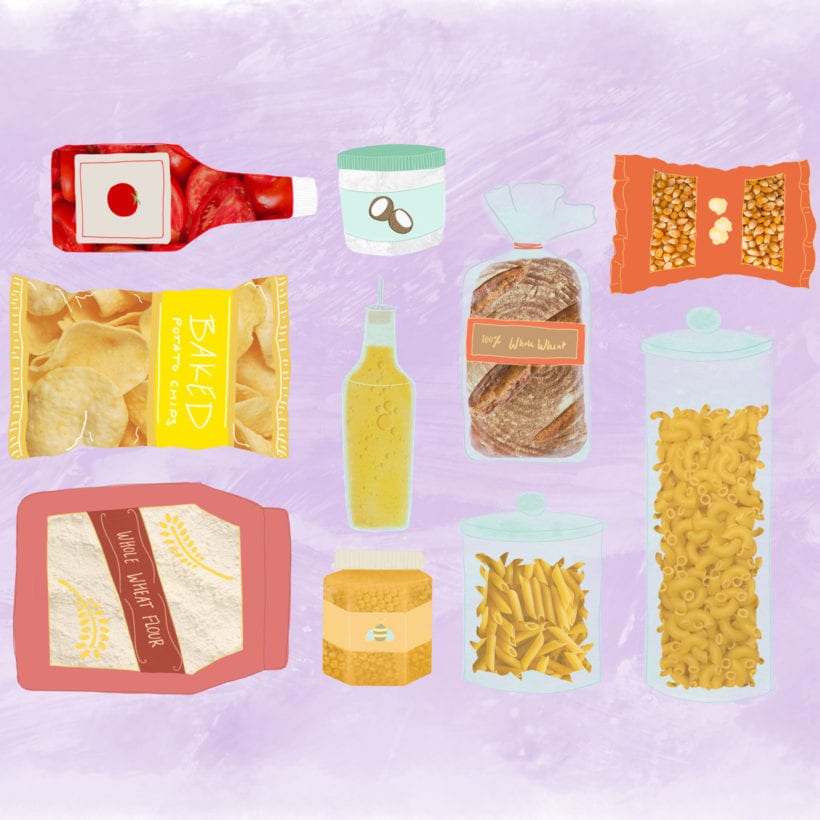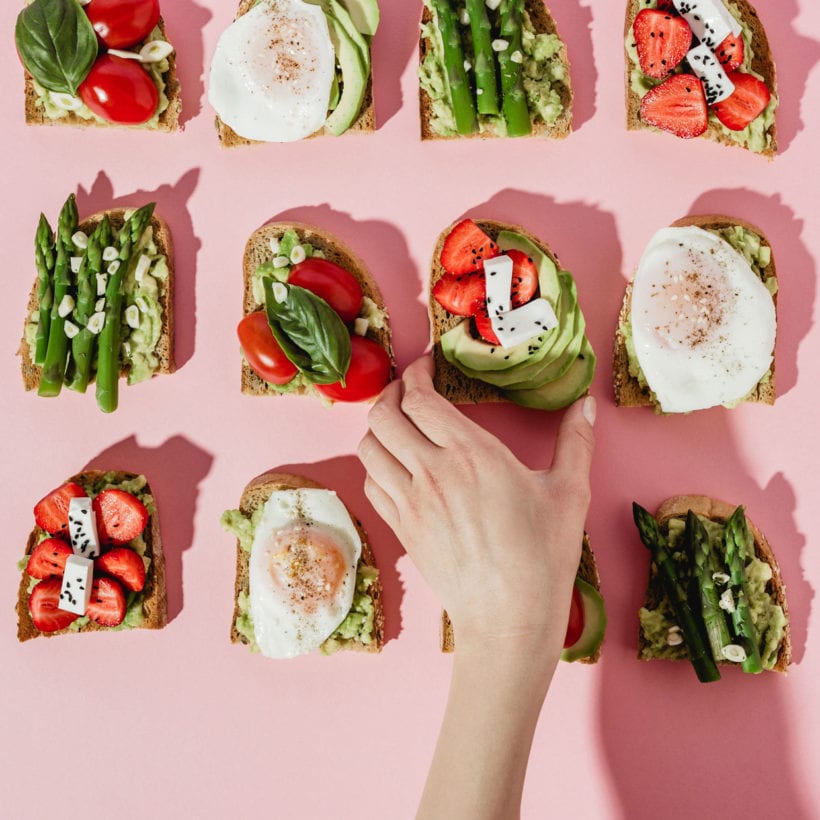Like the low-fat craze of the ’80s or the vegan moment of the early 2000s, “gluten-free” now has become a synonym for “better for you.” Chances that you know someone who avoids gluten are big. Even though only around 1 percent of Americans have celiac disease — an autoimmune disorder that causes the immune system to attack the small intestine when gluten is ingested — about one in four people believe that going gluten-free is a healthy choice for everyone.
The reality is that most people do not entirely understand why they feel like they should avoid it. On top of all of that, there is some scary-sounding research on glyphosate, an herbicide used in conventional (meaning, non-organic) agriculture, particularly on wheat. A quick scan of the Google results on gluten and glyphosate makes it seem like they are inherently bad. The reality is more complicated, so we broke it down for you.
Q: If I don’t have celiac disease, is there any reason for me to avoid gluten?
A: “For people without an allergy, there is no reason to avoid it,” says Rachel Nazarian, M.D., of Schweiger Dermatology Group in New York. “Consider it similar to the situation with nuts: If you’re not allergic to nuts, you can ingest and enjoy them — they’re absolutely fine for your health.”
Other studies suggest that going gluten-free might potentially cause harm: A lot of people who cut gluten out of their diet end up substituting wheat products — like bread, crackers and other baked goods — with rice flour alternatives. According to a study in Epidemiology, evidence suggests that rice-based products can contain high levels of toxic metals like arsenic and methylmercury.
Celiac is diagnosed with a blood test that checks for the way your body reacts to any gluten in your system, so make sure to see a doctor before cutting it out. Removing it from your diet before taking the test can alter the results.
Q: But what about the new research I’ve been seeing about gluten and the herbicide glyphosate?
A: This part gets a little tricky. Glyphosate is the active ingredient in Roundup, an herbicide produced by the chemical company Monsanto. To some people, that already sounds bad, but two recent studies have people really freaked out about glyphosate. One in Interdisciplinary Toxicology proposes that glyphosate might be the actual cause of the celiac epidemic. In this study, carnivorous fish that were fed glyphosate developed digestive problems that looked a lot like celiac disease. Another study from the nonprofit Environmental Working Group suggested that popular children’s breakfast cereals like Cheerios contained what they called “a hefty dose” of glyphosate. The article was picked up by multiple news outlets, including CBS News, adding fuel to the fire.
Those few sentences alone are enough to make you want to quit gluten and replace everything in your pantry with its organic counterpart. But there are a few problems with both of those studies. First, neither was peer-reviewed, which is an essential measure of quality control for scientific studies. And in both, the quantities of glyphosate being studied make the risk seem a lot higher than it actually is. In the fish study, the amount fed to the fish was enormous, multiple times higher than the amounts that a person with a normal diet would ever encounter. And in the cereal study, the measurements that they defined as “dangerous” are exponentially lower than the actual safety levels set by the Environmental Protection Agency (EPA).
An article from the Genetic Literacy Project, another nonprofit, says that “hundreds of studies, including by the EPA, have found glyphosate poses no serious health threat to humans.” It continues: “Some studies do exist which suggest a connection [between gut health and glyphosate], but so far they are only sketching hypothetical models.”
Q: I don’t have celiac, but eating a gluten-free diet just makes me feel better! What do you have to say about that?
A: “Unless you have a true allergy to gluten, removing it from your diet has no proven benefit. High glycemic index foods that can spike your blood sugar and may oftentimes be related to foods that also contain gluten, and have been shown to potentially impact acne formation. But it’s the sugar that’s the possible culprit, not the gluten,” says Nazarian.
Some nutritionists, dieticians and holistic healthcare specialists do recommend foods that are naturally low in gluten. “I generally recommend even for those who don’t have celiac disease, for optimal digestion and health, to choose mostly naturally low-gluten or gluten-free foods,” says Molly Lee, a board-certified holistic nutritionist and founder and director of Energizing Nutrition in New York City. Instead of steering her clients towards similarly processed foods or those containing rice flour, she recommends replacing wheat with the pure forms or products made with quinoa, buckwheat or coconut. “Avoid highly processed gluten-free products as they usually contain high GMO foods like soy and corn and have a long list of ingredients you don’t recognize,” she says. If you are buying products that have gluten in them, go for organic and/or local foods that have a shortlist of ingredients that you can recognize. And when it comes to bread, sourdough bread is a good choice. It is fermented, which makes it easier to digest for most people. “Sprouted grain bread is also a good choice because it’s flourless and although not completely gluten-free, more digestible and much lower in gluten than regular bread,” adds Lee.
Q: If I do have celiac or gluten sensitivity, do I need to be careful about the skincare products and makeup I use?
A: “Yes, but not all product-types need to be avoided,” says Nazarian. “Although systemic absorption of topical products is quite limited, for someone with the celiac disease even a small amount of gluten can have a negative impact on their health.” You do not need to avoid all products, but you do need to be especially careful about anything you put on or near your mouth. “Those which can have increased absorption, such as lip gloss, lipsticks or ones at risk for ingestion should be avoided completely,” she adds. Other things you might want to take into account: Lip balms, facial moisturizers, and if you have a habit of biting your nails or eating with your hands, hand creams and nail polishes.
Q: How do I know which products contain gluten and which ones don’t?
A: Always read the ingredients. If you are not sure, check the product website. Plus, Dermstore offers a helpful roundup on its website of products that they know are gluten-free.





